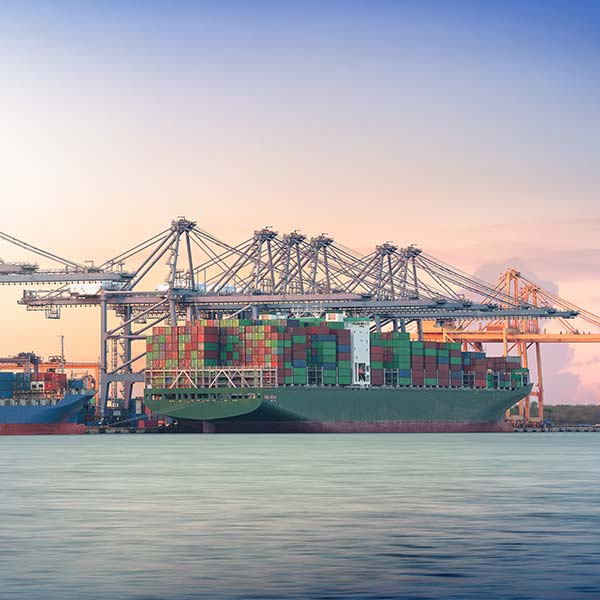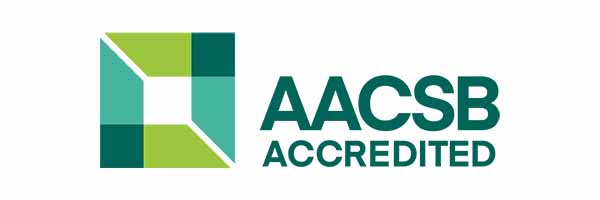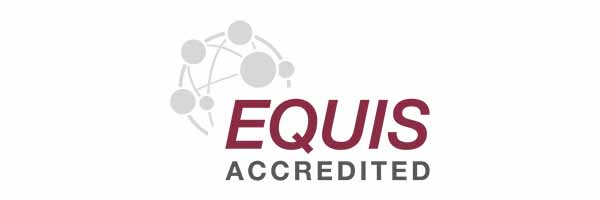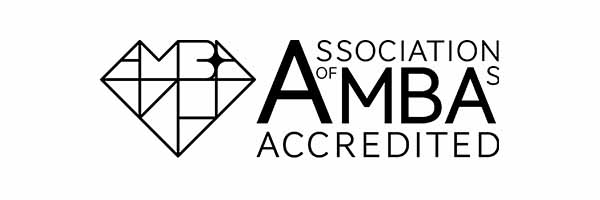MBA Master of Business Administration with a Specialism in Shipping
ApplyKey facts
- Start date: April & October
- Study mode and duration: MBA/PgDip: part-time - 2 years
Triple-accredited business school: AMBA, AACSB & EQUIS
Over 50 years: Delivering our prestigious MBA programme
Ranked: FT Executive MBA 2021; Corporate Knights Better World MBA 2021
Study with us
- gain an internationally-recognised qualification from a collaboration between Strathclyde’s Business faculty and its department of Naval Architecture, Ocean and Marine Engineering
- an accredited MBA specifically designed for high potential executives in global shipping and the maritime sector
- intensive seminars delivered in Athens by University of Strathclyde academics
- study strategy with internationally-acclaimed academics
- A choice of elective subjects tailored to the global shipping and maritime sector
- develop confidence as a manager and leader
- improve your career prospects or change career direction
Why this course?
Strathclyde Business School has been delivering the Strathclyde MBA on an executive (part-time) basis via our international centres since 1988. We’ve successfully offered and developed the MBA in Greece since 1996.
A pioneering and experienced MBA provider, we update and review our MBA to ensure that it reflects the current business environment and addresses specific industry/sector needs.
Our engagement with Greek MBA alumni and corporate contacts working in senior positions in the Greek shipping and maritime industry has both highlighted the need for a specialist MBA and helped inform our programme content.
Developed jointly by Strathclyde Business School (SBS) and University of Strathclyde’s Department of Naval Architecture, Ocean & Marine Engineering (NAOME), the MBA in Shipping addresses the management development needs of high potential shipping executives.


Department of Naval Architecture, Ocean & Marine Engineering
NAOME at Strathclyde is over 100 years old. In that time, the Department has become a key provider of marine technology expertise throughout the UK and the world, building on Glasgow’s rich heritage of naval architecture and shipbuilding.
NAOME develops first-class graduates and research for the maritime, oil & gas and offshore renewables industries across the world. The research supports industry and society in useful and innovative ways. Over the last twenty years, the Department has made a major contribution to the safety of ships around the world through pioneering work in the stability of damaged ships.
NAOME is currently researching a wide range of challenges including reducing carbon emissions from shipping, developing new types of floating wind turbines, and new tools for modelling fluid loads on floating structures.
The Department is perfectly placed to ensure that the programme content for MBA in Shipping adequately reflects the current technical and technological challenges facing this vibrant sector, as well as realising opportunities for future development and growth.
A strategy-focused MBA
Strathclyde’s MBA is strategy-focused and blends theoretical and practical business learning. Our MBA is flexible and responsive to the needs of working individuals.
The MBA project gives you an opportunity to examine in depth a managerial, organisational or environmental issue of your choice over an extended period of time. Our Executive MBA allows you to study whilst continuing with your career and allows you to implement your learning into work.
As a world-class business school in a leading international technological university, we continue to innovate with our MBA and other programmes to ensure they are completely relevant and impactful to today’s business world.
Professor David Hillier Associate Principal, Executive Dean
What is the programme format?
The programme is designed for busy executives who need to combine career and family commitments with the demands of MBA studies. The flexibility of the part-time approach enables most participants to graduate within two years. However, study may be spread over a longer period if necessary, to a maximum of five years.
Typically, your MBA studies will be made up of:
- monthly intensive seminars delivered by Strathclyde academics at our centre in Athens*
- regular tutorials with our locally based counsellors
- off-campus learning and support via our virtual learning environment
You’ll work in an international environment alongside like-minded classmates and be part of our long-established network of students and alumni from our international postgraduate centres.
*delivery of intensive seminars in-country by Strathclyde academics will be subject to prevailing Covid-19 government guidelines for both Scotland and Greece.
Course content
The Strathclyde MBA is based on collaborative learning. You share work experience, knowledge, understanding and skills.
Our purpose is to help to develop you in diverse areas of management.
The MBA will shape and guide you as reflective, open-thinking, adaptive learners.
The Learning Manager
Shipping managerial learning, group interaction, team building and team-working, influencing style and influencing others within a broader company and shipping context.
Entrepreneurial Management & Leadership
Shipping entrepreneurial management, shipping corporate entrepreneurship, building an entrepreneurial shipping team and capability.
Comparative Corporate Governance
Shipping corporate governance (CG), shipping CG principles and models, effective shipping CG framework, shipping organisation shareholders, Corporate Social Responsibility (CSR) in shipping, maritime law, maritime legal aspects and business implications
This module helps you understand the management fundamentals and processes vital to business success and that are operated by specialist functional teams in an organisation.
By becoming aware of these disciplines you’re more able to appreciate each function as well as the relationships and tensions between them.
The module has six classes:
- Finance and Financial Management
- Marketing Management
- Analytical Support for Decision Making
- Operations Management
- Managing People in Organisations
- Financial & Management Accounting
Operations Management
Shipping operations management, shipping industry and market environment, shipping industry supply chain management, inventory control, production control, and quality and lean operation in shipping, shipping performance measurement, chartering and charter party analysis, shipping insurance aspects.
Managing People in Organisations
- Managing people in organisations/HR in shipping, shipping company organisational structure for on-shore and seagoing personnel, crew and HR management
- Managing organisational performance/evaluation and rewards within a shipping company, shipping organisational change, managing conflict within a shipping context
Analytical Support for Decision Making
- Relevance and importance of shipping information statistics and decision making in shipping, business analysis and forecasting
- Making sense of shipping data and information, quantifying uncertainty and trade-offs of shipping information
Marketing Management
Marketing Management introduces major marketing concepts and techniques and the marketing planning process. This includes exploration of what marketing is, understanding of marketing orientation and buyer behaviour. The development of an appropriate marketing strategy for an organisation will be emphasised to enable the manager to make important marketing decisions. The changing role of marketing, within and between organisations, will be studied incorporating information technology, new organisational structures and different forms of market relationships.
Financial & Management Accounting
Financial concepts and techniques used within the shipping industry. Financial stakeholders interaction in shipping (managers, directors, auditors), shipping company performance and financial position, interpreting financial statements in shipping affecting decision making in shipping (balance sheet, cashflow statement, annual report, etc.).
Finance & Financial Management
Financial market and institutions, raising shipping capital, shipping financial decisions and value of money, investment criteria (Net Present Value, internal rate of return, etc.), capital budgeting, capital structure and the use of debt financing. Shipping company shares and company valuation.
This module is designed to help you integrate the classes in the 'Making the Business Work' module.
The classes are designed to help you explore, understand and confidently manage internal and external ambiguity, complexity and uncertainty. The Strathclyde MBA is renowned for its reputation in these aspects of management.
There are four classes in this module
- Exploring the International Environment
- Strategy Analysis and Evaluation
- Making Strategy
- Exploring the International Business Environment
Exploring the International Business Environment
The class aims to help students understand and become comfortable with the inherent ambiguity and uncertainty in the contextual (or macro) environment where the irreducible uncertainties lie and which affects all organisations but which they essentially have no control over; this is distinct from the transactional or internal environments of organisations over which they have varying degrees of control.
Making Strategy
The class aims to develop students’ ability to make strategies for their own department, operating unit, Strategic Business Unit, in contrast to servicing a Chief Executive. It seeks to introduce in theory and practice the principles of negotiating strategy in a small management team, stakeholders being involved, shipping strategic issue management and shipping business models.
Strategic Consulting in Practice
Detailed elaboration and examination on a particular shipping company/organisation case study employing theories learnt so far, shipping strategy review, shipping company/organisation uncertainties, presentation of the case study results to shipping companies senior personnel.
To truly tailor personalise your MBA studies, the MBA in Shipping offers 4 Shipping industry-specific electives. To complete your studies, you are required to complete 2 electives from the following:
Systems availability and maintenance
Provide an insight into the qualitative and quantitative systems’ reliability techniques as well as maintenance methodologies with particular emphasis to the maritime industry.
The course will give students the ability to formulate, solve, report and present a comprehensive maintenance strategy based on the application of reliability and criticality analysis and assessment tools.
The module will also provide students with an insight of the day-to-day operations of ships as well as explore and present features related to ships dry-dockings, inspection, repair and maintenance scheduling, regulatory regime as well as practical case studies on the above.
Shipping Economics & Market Sector Analysis
Shipping Economics & Market Sector Analysis aims to provide students with an understanding of the financial and operational issues that companies that manage or own ships in the various sectors of merchant shipping face, both charter and liner shipping. In addition, an acquaintance with maritime sector infrastructures is provided.
Maritime Safety & Risk
This module aims to demonstrate how the principles and methods of risk analysis are undertaken and reflected in:
- safety assessment. Risk analysis offers a variety of methods, tools and techniques that can be applied in solving
- problems covering different phases of the life cycle of a vessel (design, construction, operation and end-of-life) and, as such, this module will also elaborate on the practicalities of its application to a range of marine scenarios
Maritime Regulatory Framework
This module aims to provide:
- a comprehensive introduction to the marine regulatory framework, including the background to its development, description of the current framework and future enhancements
- an in-depth explanation of the theoretical background, nature and meaning of the criteria development
- quantitative demonstration of the available routes and criteria to assessing compliance with the regulatory framework
- overview of current challenges and regulatory activities
MBA Project
The MBA project gives you an opportunity to examine in-depth a managerial, organisational or environmental issue of your choice over an extended period of time.
The project allows you to put into practice the knowledge and skills that you have developed throughout the Strathclyde MBA in Shipping.
The final project is an integral part of the Strathclyde MBA in Shipping and can be done on an individual basis or as part of a group.
Triple-accredited business school
Learning & teaching
Learning methods include:
- face-to-face teaching by Strathclyde University staff
- regular local counselling support with our partner in Greece
- home/private study with specially prepared core learning materials
- assignments and examinations set, marked or validated by Strathclyde University staff
Assessment
Assessment throughout the programme involves a combination of:
- course work
- workshops
- examinations
- group work
- presentations
As far as possible, coursework will be related to your work environment. The examinations and assignments are set, marked and validated by the University of Strathclyde academic staff. They're identical to and assessed on the same basis as students undertaking the programme in the UK.
Examinations
There are two examination schedules each year:
- March
- July
All examinations are available at each sitting and you choose which is most appropriate for you.
MBA entry requirements
Our selection process is designed to identify talented professionals from a wide range of academic, business and cultural backgrounds.
While there are formal requirements for entry to our MBA listed below, we take into consideration:
- your potential
- your interpersonal and team working qualities
- the range and nature of your managerial experience
In order to assess these skills, we ask you to complete a number of essays outlining your experience and aspirations alongside references supporting your work experience and academic record.
We may ask you to undertake a formal interview to discuss your achievements and aspirations. We encourage you to visit the school or centre you’re applying to and to ask as many questions as you need to clarify your decision.
| Qualifications & experience | For entry to the MBA programme you must:
Direct entry to the MBA may also be offered to applicants who do not hold sufficient recognised degree-level qualifications, but who do:
This option is not available for candidates applying to the full-time programme. |
|---|---|
| Admissions testing | Although the Graduate Management Admissions Test (GMAT) is not a standard requirement of our admissions process, strong verbal reasoning and numerical abilities are critical for the MBA and we may ask you to undertake such a test. |
| Competence in English | The MBA programme is highly interactive and requires a high level of competence in English speaking, writing, reading and understanding. A minimum score of 6.5 in IELTS is required for those applicants whose first language is not English. We may consider applicants who fall slightly below these standards if they're willing to undertake pre-sessional study. |
| Computer competence | In order to undertake the Diploma/MBA you need to be competent in word processing, the use of spreadsheets and in report writing. |
Fees & funding
Fees may be subject to updates to maintain accuracy. Tuition fees will be notified in your offer letter.
All fees are in £ sterling, unless otherwise stated, and may be subject to revision.
Annual revision of fees
Students on programmes of study of more than one year (or studying standalone modules) should be aware that tuition fees are revised annually and may increase in subsequent years of study. Annual increases will generally reflect UK inflation rates and increases to programme delivery costs.
| Tuition fees | Details of fees are available from our partner in Greece. Please note that fees can be paid in instalments and a study loan scheme is also available. |
|---|---|
| Additional costs | Course materialsAll materials including Digital books included in the cost of the course |
Please note: the fees shown are annual and may be subject to an increase each year. Find out more about fees.
Careers
We recognise that career development is one of the main reasons why people invest in an MBA. The MBA job market offers plenty of global opportunity but can be complex and challenging.
That's why we offer a dedicated careers service for MBA students. This consists of career planning and skills development as well as unlimited access to personal advice and coaching. Our careers service is delivered in-house and by a team of top consultants.
We work with you to compliment your own proactive job search efforts. We help use your own particular career background and strengths to help with your next career move.
You’ll gain the understanding and tools to develop your personal, strategic career plan, as well as the self-marketing and communication skills to make effective applications and impress at interview.
You’ll have the knowledge of the global job market and a range of contacts to make it work for you.
Dedicated careers resources
You’ll have access to a library of MBA-specific information and resources through our Careers Portal. This offers:
- company and market information, both UK and global
- vacancies all over the world
- links to top MBA sites
Further information
Go to our dedicated Careers section to get information on:
- Career planning
- Preparing your CV
- The job market
- Interview advice
- Entrepreneurship and innovation
- Employers
- Alumni
- Projects and client consultancy
- Overseas support
Apply
For information and guidance on the application process, take a look at our How to Apply web page.
Start date: Oct 2024
Business Administration (Shipping) - October intake
Contact us
Ms Afroditi Feredinou - Director
Telephone: +30 210 72 30 814
Email: info@imstudies.gr
International Management Studies, 296
Kifissias Ave, 152 32 Chalandri
Athens
Campus location
Partner information
For more information about our partner in Greece, please visit the IMS College website.
Strathclyde MBA study routes
Our MBA is offered through various modes of study, both in Glasgow and in our international centres.




